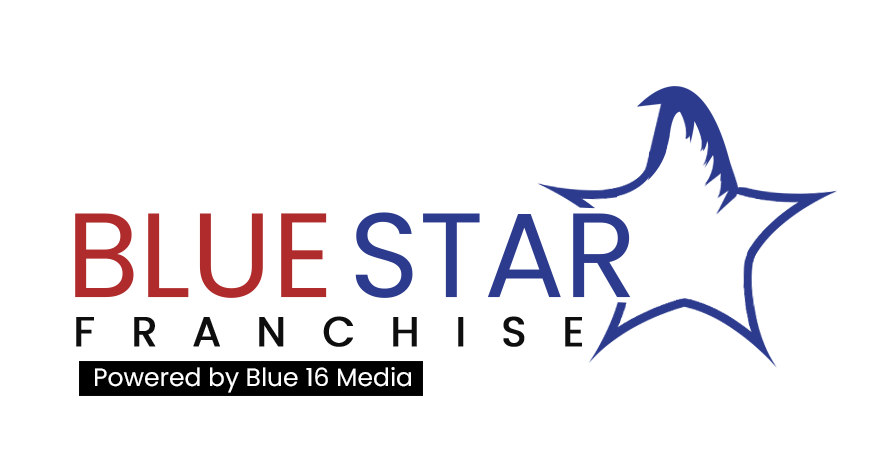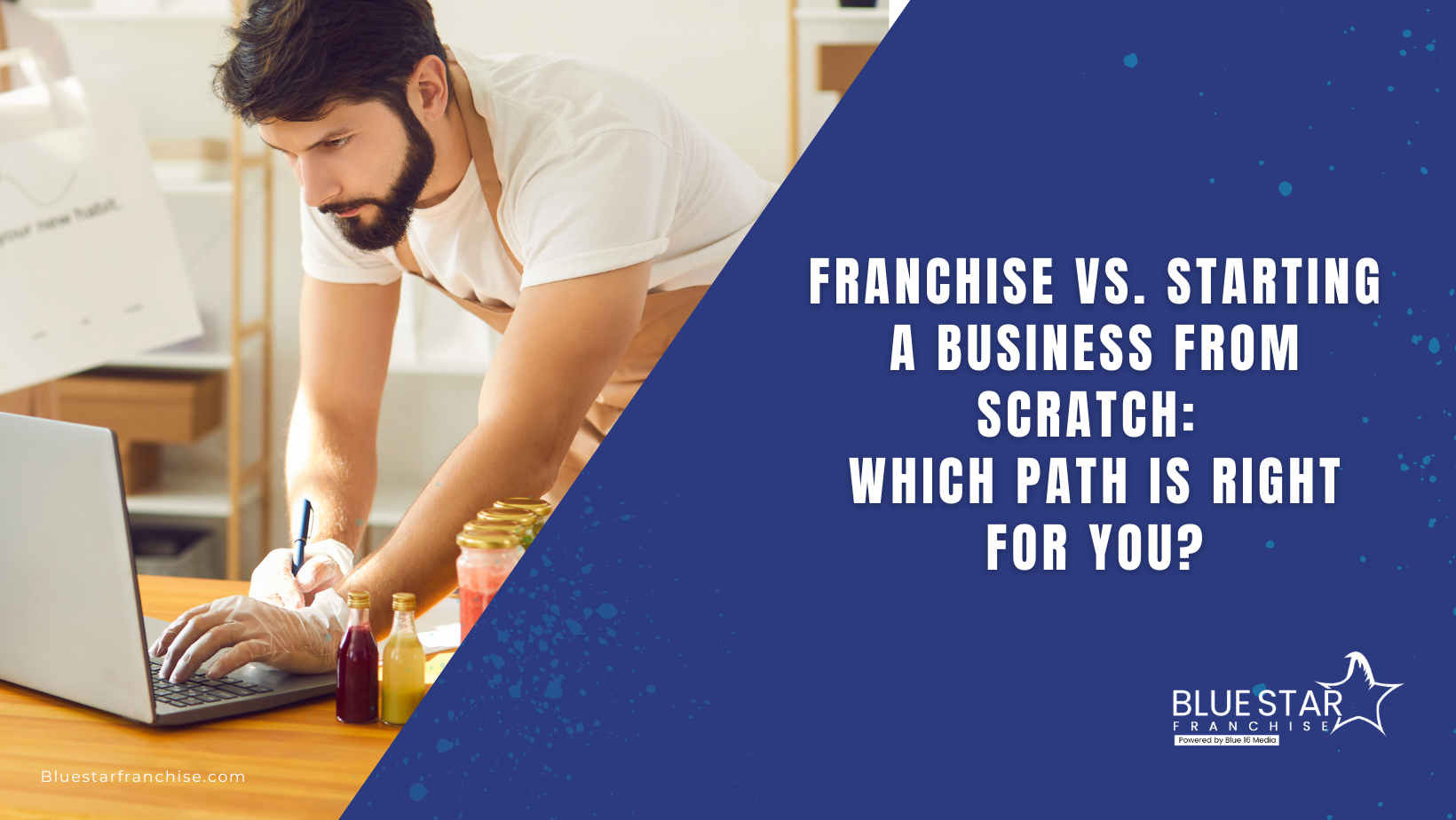One of the first major decisions aspiring entrepreneurs face is choosing between buying a franchise or starting a business from scratch.
Both paths offer unique advantages and disadvantages, and the right fit depends on your individual circumstances, risk tolerance, and entrepreneurial vision.
This guide will provide a comprehensive comparison to help you determine which path is right for you.
Understanding the Basics of Franchise and Startup
What is a Franchise?
A franchise is essentially a license granted by a company (the franchisor) to an individual or group (the franchisee), allowing them to operate a business using the franchisor’s established brand, business model, and operating systems.
Owning a franchise means investing in a proven business model, leveraging existing brand recognition, and receiving ongoing support and training from the franchisor.
Potential franchise owners often consider this a less risky way to start a new business than starting from the ground up.
What Does Starting a Business from Scratch Entail?
Starting a business from scratch, also known as building a startup business, involves creating an independent business from the ground up. This means developing your own unique business model, brand identity, products or services, and operational strategies.
Starting a business from scratch provides complete control and creative freedom, but it also entails greater risk and responsibility associated with starting.
Key Differences Between Franchise and Startup
The key differences between buying a franchise vs starting a business from scratch lie in the level of control, risk, and support. With a franchise, you’re essentially buying into an existing business system, limiting your autonomy but providing a safety net.
In contrast, starting your own business grants you complete control over every aspect of your business, demanding more entrepreneurial spirit. Determining whether a franchise or starting a business is the right choice for you demands careful consideration of these core distinctions.
Pros and Cons of Buying a Franchise
Advantages of Franchise Ownership
Owning a franchise offers several advantages.
| Advantage | Description |
| Proven Business Model | Reduces risk by investing in a tested and refined system. |
| Brand Recognition and Marketing | Offers immediate recognition and established marketing. |
| Ongoing Support and Training | Franchisor support is invaluable for new business owners. |
The ongoing support and training provided by the franchisor is invaluable. Buying a franchise offers a safety net and framework, along with collective buying power and shared marketing resources.
Challenges of Owning a Franchise
Despite the advantages, there are several challenges associated with owning a franchise. These challenges include a lack of autonomy and the payment of franchise fees and royalties.
A thorough review of the franchise disclosure document is essential to fully understand these financial obligations.
While a franchise often provides support, it may not always be tailored to your specific needs, and you may still encounter unexpected challenges.
| Challenge | Description |
| Lack of Autonomy | Franchisees must adhere to the franchisor’s established guidelines and operating procedures. |
| Franchise Fees and Royalties | These payments can impact profitability. |
Potential small business owners need to weigh these restrictions against the benefits when considering whether to buy a franchise or start independently.
Financial Implications of Buying a Franchise
In addition to franchise fees, there are ongoing costs such as marketing contributions, inventory purchases, and operational expenses. Conducting thorough financial due diligence, including reviewing the franchise disclosure document and consulting with financial advisors, is essential before making the leap and deciding to invest in a franchise.
Pros and Cons of Starting Your Own Business
Benefits of Being an Independent Business Owner
As an independent business owner, you have the freedom to make all decisions related to your business, from branding and product development to marketing and operations.
This allows you to fully realize your entrepreneurial vision and create a business that aligns with your values and goals. You have the liberty to innovate, adapt to market changes, and build a unique brand identity.
The satisfaction of building something from the ground up and shaping every aspect of your business is a driving factor for many who choose this path.
For small business owners looking for complete creative freedom, starting a business offers unparalleled opportunities compared to a franchise business.
Potential Risks of Starting a Business from Scratch
Building a new business from the ground up means there is no guarantee of success. This requires extensive market research, business plan development, and a willingness to adapt as you learn what works and what doesn’t.
You are responsible for creating your own brand identity and marketing strategies, which can be time-consuming and costly. The risk associated with starting a startup business is often higher than buying into an existing business due to these uncertainties.
Without the support of a franchisor, the learning curve can be steep and the potential for failure higher. Therefore, careful planning, resilience, and a strong entrepreneurial spirit are crucial for success when deciding whether to start a business or buy a franchise.
Financial Considerations for Startup Business
The financial considerations for starting a business from scratch are distinct from those associated with buying a franchise. Initially, securing funding for a startup can be challenging, as traditional lenders may be hesitant to invest in unproven ventures. Small business owners may need to rely on personal savings, loans from friends and family, or seek out venture capital.
Developing a detailed and realistic business plan is crucial for attracting investors and managing cash flow. Unlike franchise fees, startup costs can be unpredictable, requiring careful budgeting and financial management.
Building a brand, marketing your products or services, and establishing a customer base can all be expensive endeavors. Small business owners must carefully assess their financial resources and develop a sustainable business model to achieve long-term success.
Franchise vs. Starting a Business: A Comparison Table
Costs
When comparing the costs of a franchise versus starting a business from scratch, significant differences emerge. Franchise opportunities often involve substantial initial franchise fees.
Start-up costs for buying a franchise may include ongoing royalties, marketing contributions, and required equipment purchases.
By contrast, starting a business from scratch might have lower initial fees but potentially higher overall costs due to branding, marketing, and product development. The franchise disclosure document provides insights into these expenses.
| Cost Category | Franchise | Starting from Scratch |
| Initial Fees | Substantial | Lower |
| Ongoing Costs | Royalties, marketing,
equipment |
Potentially higher due to branding, marketing, and
product development |
Risks
The risks associated with a franchise or starting independently differ considerably. Owning a franchise generally offers a lower risk profile due to the established brand recognition and proven business model.
However, franchise business owners face the risk of being tied to a franchisor’s decisions, potentially limiting flexibility. Starting a business from scratch carries higher risks, including market uncertainty and the need to build a brand from the ground up.
Therefore, carefully assess your risk tolerance before deciding whether that path is right for you.
Making the Right Choice for Your Business Journey
Assessing Your Goals and Resources
When deciding whether to buy a franchise or start independently, small business owners must carefully assess their goals and resources.
Consider your financial capabilities, risk tolerance, and long-term vision for your new business. Do you prioritize creative freedom or seek the security of a proven business model?
Evaluate your skills, experience, and access to capital to determine which business ownership model best aligns with your capabilities. The right fit depends on these factors.
Evaluating Market Opportunities
Conduct thorough market research to identify potential franchise opportunities or business niches suitable for starting a business from scratch.
Analyze market trends, competitor analysis, and customer demand to assess the viability of different business ventures. Understanding market dynamics is crucial for success.
Determine whether investing in a franchise in a growing industry aligns with your goals or if creating a unique startup business caters to an underserved market segment.
Market evaluation informs the right choice and your chances of becoming a business owner.
Deciding Between Buying a Franchise or Starting Your Own Business
Ultimately, the decision of buying a franchise vs starting a business hinges on your personal preferences, financial resources, and entrepreneurial aspirations.
If you value a proven business model, established brand recognition, and ongoing support, exploring franchise opportunities might be the right choice.
If you prioritize creative freedom, complete control, and the opportunity to build a brand from the ground up, consider starting your own business.
Your comfort, along with your skills, will decide whether to purchase a franchise or build a business yourself.

